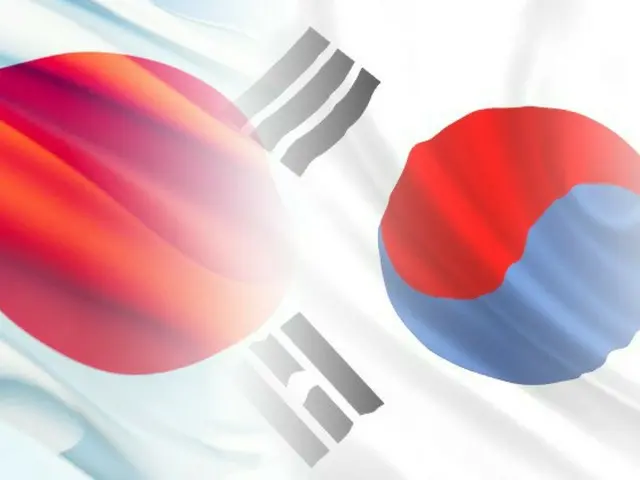did. The Japanese government has consistently refrained from participating in trials based on the principle of ``sovereign immunity'' under international law, which states that a sovereign state is not subject to the jurisdiction of another country. In response to the judgment, the Ministry of Foreign Affairs of South Korea
``Our government continues to make efforts to restore the honor and dignity of the former comfort women,'' an official from the Ministry of Foreign Affairs said, ``The government has made the 2015 South Korea-Japan comfort women agreement a national respect as an agreement between
"This recognition has been consistently maintained throughout successive administrations," he said, reiterating his policy to resolve the issue through a diplomatic framework.
In December 2016, former comfort woman Lee Yong-soo and the bereaved families of former comfort women made a statement in December 2016 saying,
They filed a lawsuit against the Japanese government, demanding damages of 200 million won (approximately 21.98 million yen at current exchange rates) per person. Seoul central area in April 2021
The court's first instance judgment dismissed the plaintiff's lawsuit, stating, ``In accordance with customary international law and South Korean Supreme Court case law, a claim for damages for acts of foreign sovereignty cannot be recognized.'' The comfort women issue
It also recognized the validity of the 2015 comfort women agreement, which confirmed a "final and irreversible resolution." The plaintiffs appealed, and on the 23rd of last month, the Seoul High Court of second instance canceled the first instance judgment and ordered the Japanese government to pay compensation.
It was. The focus was on whether the principle of ``sovereign immunity'' under international law, which states that a sovereign state cannot be judged by the courts of another country, is recognized, but the high court ruled that ``based on customary international law,
``In some cases, sovereign immunity of the at-fault state may not be recognized for illegal acts caused against foreigners.'' “Under international customary law, it is appropriate to recognize the jurisdiction of Korean courts over the Japanese government, which is the defendant.
The court ruled that appropriate compensation must be paid because the defendant's illegal acts were recognized in the process of recruiting comfort women.
One of the plaintiffs, Lee Yong-soo, spoke to reporters after the verdict and said, ``The Japanese government is
They should sincerely apologize and pay legal compensation in accordance with the judgment." The Hankyoreh, a South Korean newspaper, wrote in an editorial on the 24th of last month, ``Countries that committed anti-humanity crimes such as 'military comfort women' during wartime are
"It is a judgment of great historical and legal significance, as it clarifies the principle that one cannot escape from one's responsibility." On the other hand, the Japanese government stated that the ruling is ``absolutely unacceptable.''
” stated the position. Masataka Okano, vice-minister of the Ministry of Foreign Affairs, summoned South Korea's ambassador to Japan, Yun Dong-min, to protest. Furthermore, on the 26th of last month, Foreign Minister Yoko Kamikawa visited Busan in the southern part of South Korea.
Meeting with Japan's Foreign Minister Park Jin. He protested the ruling, calling it "extremely regrettable" and calling for corrective measures. At a press conference on the 8th of this month, Foreign Minister Kamikawa stated that he had no intention of filing an appeal.
The government has made a proposal to South Korea that it cannot be accepted as it clearly violates international law and the agreement between Japan and South Korea. We continue to request that the South Korean side take appropriate measures.
'' he said. The deadline to appeal to South Korea's Supreme Court was until the 8th of this month, but since the Japanese government did not appeal, the judgment became final. The plaintiffs will now have access to Japanese government assets in South Korea.
It appears that they are aiming to foreclose the property, but there is no way to forcibly seize it, so it is thought to be difficult in practice. As a result, Japanese media reports that ``the impact on Japan-Korea relations will be limited.''
. The South Korean government commented, ``As we continue our efforts to restore the honor and dignity (of the former comfort women), we will strive to ensure that both South Korea and Japan continue future-oriented cooperation.'' On top of that, 15 years
He reiterated that he "respects" the comfort women agreement as an agreement between nations. The Korean media Herald Keizai said, ``It appears that the intention is to utilize the content of the agreement and seek a solution to this case within a diplomatic framework.''
I told him. The previous Moon Jae-in administration effectively violated the comfort women agreement, but the Yoon Seo-gyul administration has consistently shown its position of respecting it as an agreement between nations.
Ta. The word "respect" was never uttered by the previous administration regarding this agreement. In response to the recent High Court ruling, the opposition party is responding to the Japanese government's request for appropriate measures from South Korea.
``The reason why the Japanese government is responding in such a brazen manner is because of the humiliating diplomacy toward Japan that the Yun administration has adopted up until now,'' the Democratic Party of Japan said, urging the Yun administration to ``respond with the Japanese government in a dignified manner.''
I asked. Rather than directly criticizing the Japanese government, it seems that he is directing his criticism at the Yun administration. Until now, some people have pointed out that the historical issues between Japan and South Korea are being used as a tool to criticize the government.
This time, that attitude was once again highlighted.
2023/12/12 13:22 KST
Copyrights(C)wowkorea.jp 5

